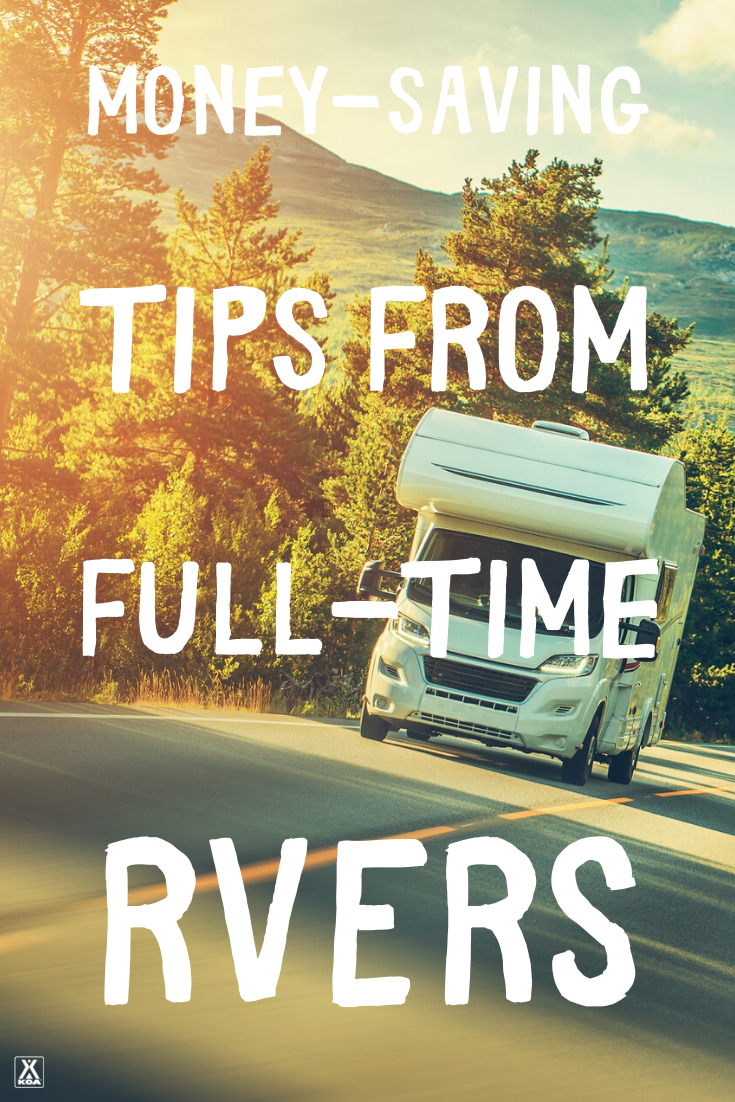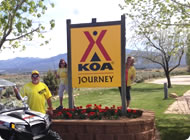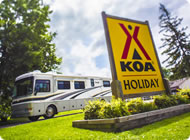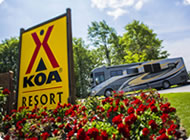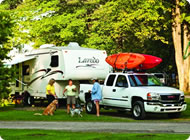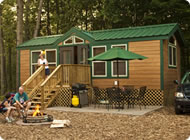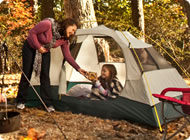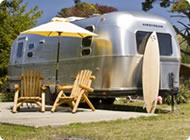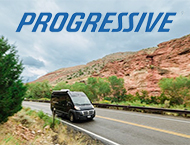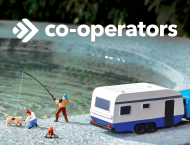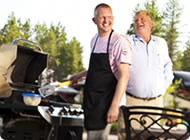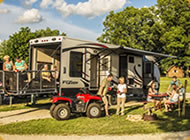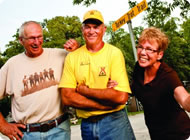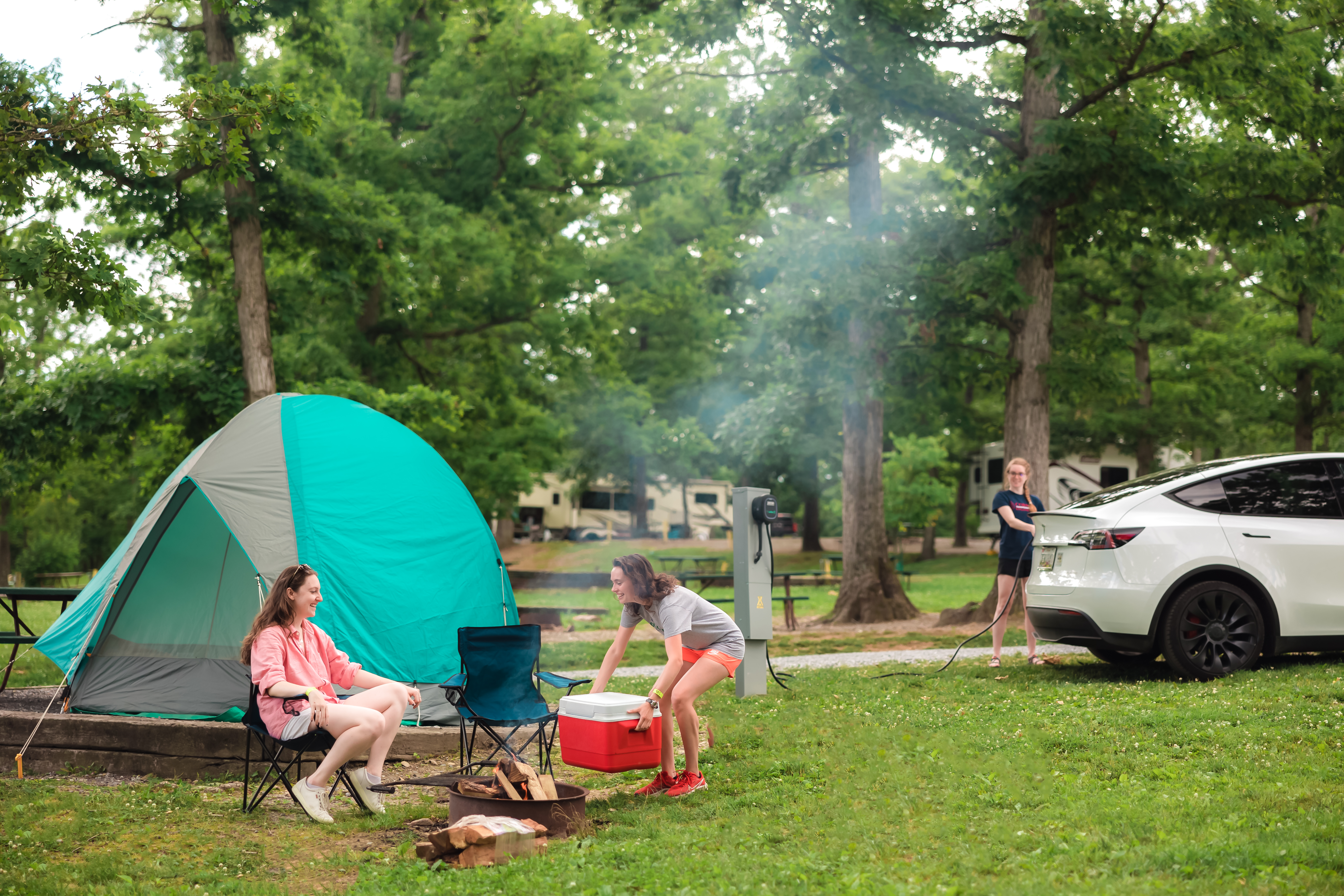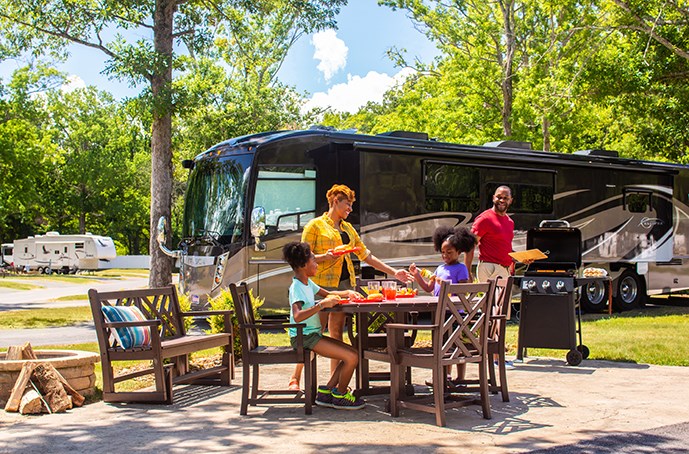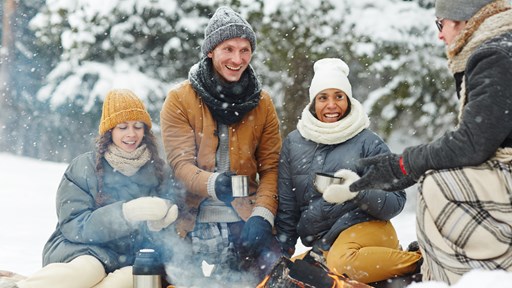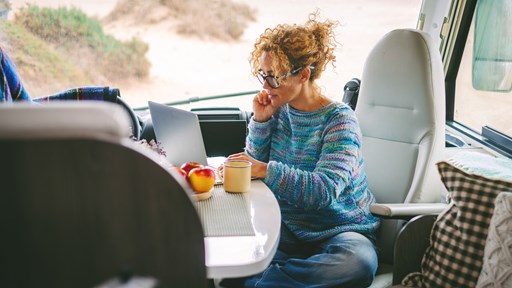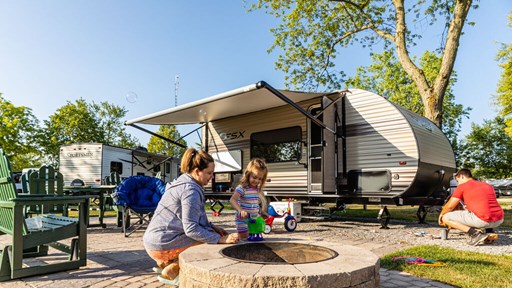In 2018 The Washington Post reported that the number of full-time RVers in the U.S. had officially surpassed 1 million. For reference, that’s more than the entire population of Austin, Jacksonville and even Iceland. Since saving money is one of the main reasons people choose the RV lifestyle, many of these full-timers are unofficial financial experts. Even if you just use your RV in the summer, or if you don’t travel on a budget, you can probably benefit from the how-to-spend-less lessons they’ve learned along their journeys. From making sure you’re getting the lowest price for gas to knowing what to invest in so you stop eating out even when you arrive too late to cook, here are 8 cost-saving tips from some generous full-time RVers.
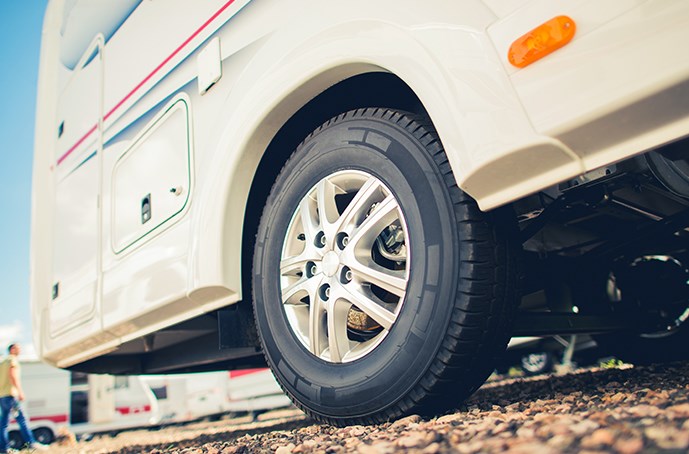
1. Don’t do propane tank exchanges, and check your tire pressure –
“They’re more expensive and they and don’t fill them as much as a refill center will fill your tank,” says Kelly Beasley, co-founder of Camp Addict. According to several RV blogs, you’ll only get 15 gallons if you exchange whereas if you refill you’ll get a full 20 gallons. Beasley, who has been full-timing it in her 24-foot travel trailer for nearly 5 years also adds that it’s best to avoid U-Haul refills. She’s found them to be more expensive than others. Also, while you’re refilling your tank, check your tire pressure. According to the U.S. Department of Energy, you can improve your gas mileage up to 3% by keeping your tires properly inflated.
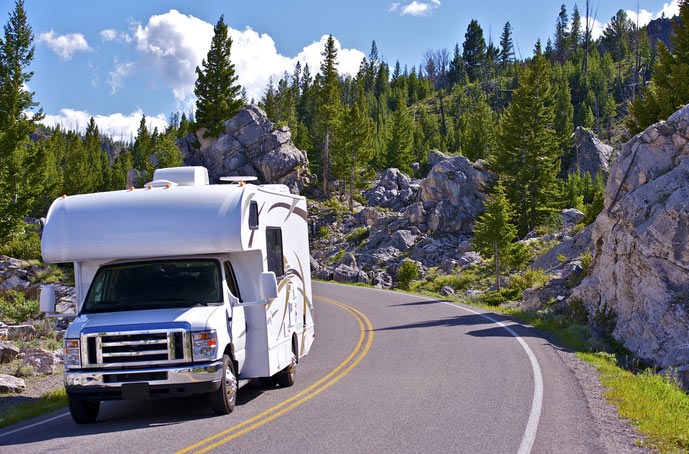
2. Slow down and stay longer
After 6 years of full-time living in their Class A motorhome, Marc and Julie Bennett – authors of authors of “Living the RV Life – Your Ultimate Guide to Life on the Road” – have learned to appreciate the art of slow travel. “When you plan for a longer stay at a campground – whether it’s a week, a month or a season – you’ll not only save money on gas, but you can often get a much better rate,” says Julie. If you’re looking at KOA campgrounds online, look for the Extended Stay link to see what your savings can be. It’s not uncommon for stays of a month or more to be discounted more than 50 percent.

3. Invest in a slow-cooker
Perhaps the most obvious way to save money while camping is to avoid eating out. But what if you’re on the road all day and you’re too tired to cook by the time you arrive at your destination? Chuck Sanders of Little Rock, AR, says he and his wife cook as they drive. How? They use their Crock-Pot. If you don’t mind putting some ingredients together before you leave, invest in a slow cooker (starting at $10) or a multi-cooker, like the incredibly popular Instant Pot (starting at $99). To avoid spills, get clips to secure the lid and if it fits, put your pot in the sink.

4. Take advantage of Groupon
Unless you plan on spending all of your time at your campsite, chances are there will be something you’ll want to check out with an admission fee. That’s when Groupon, and other similar sites, come in handy. Full-time van-lifers Jake and Emily of the blog Two Roaming Souls always consult Groupon for coupons before paying full price. For example, the cost of a child’s ticket to the Aquarium of the Bay in San Francisco is $18 at the door. On Groupon, it’s $12.95. The normal cost of an African Balloon Safaris hot-air balloon safari with champagne brunch for two is $578. But if you buy the package on Groupon, it’s just $298.
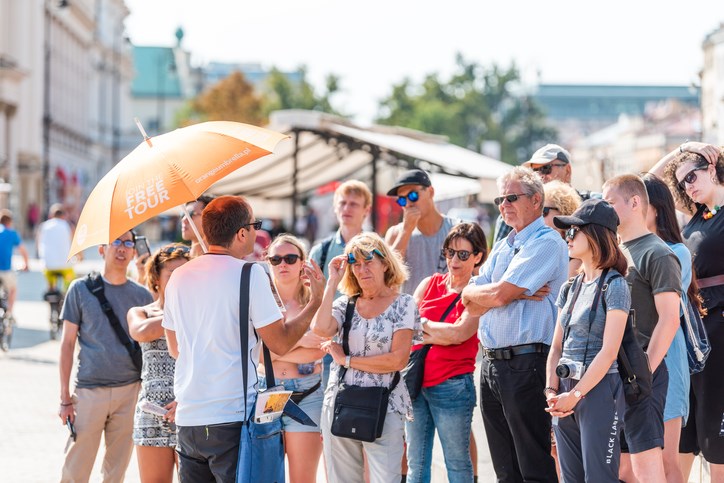
5. Take advantage of free tours
Much like national parks have free ranger-led tours, so do cities. You just have to know where to look. Jake and Emily are big fans of Free Tours by Foot. Their free tours have been mentioned by NPR and The New York Times, among others. They currently have free tours in more than a dozen major U.S. cities. For example, in Nashville, you can spend 90 minutes with a local who will take you around, answer your questions and offer recommendations on everything from where to run into a country star, find the best Nashville hot chicken or catch a free movie screening in a park.
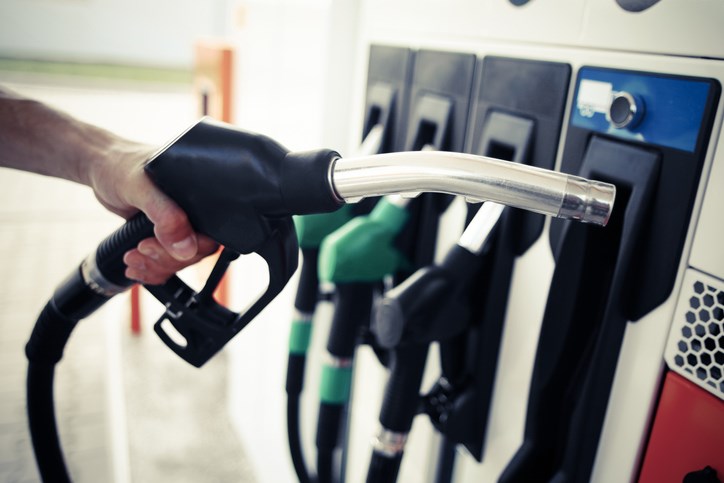
6. Use the GasBuddy app
Chances are you’ve already saved hundreds, if not more, by using this app. But if not, download it (it’s free) ASAP. Full-time RVers swear by it for finding the cheapest place nearby to fill up. “Just input your destination and GasBuddy gives you a good idea of how much it costs at all the stations in that specific area,” explains Ann from the blog While We Were Wandering. (She has been RVing full-time for four months now and GasBuddy is one of her overall favorite apps.) “When you’re driving in an unknown area, it can be tempting to simply pull off and fill up at the first gas station you see. With GasBuddy, you can stop this practice and go straight to the gas station that will save you the most money.”

7. Use the GoodRx app
This app – which is the top downloaded free medical app was #6 on CNBC’s list of the top disrupters in 2019 – is basically the GasBuddy of prescriptions. “As full-timers, we’re never in the same place when it comes time to refill medications,” says Laura Nunemaker who blogs at VeganRV from the 34’ Winnebago Adventurer class A motorhome she’s called home for 3 years. “With GoodRx we can check prices for single medications or a bundle so we can see which one place has the best price for everything. That way we don’t have to go to multiple locations.” The app works whether or not you have insurance and it can even be used to find affordable doctors and specialists in the area.
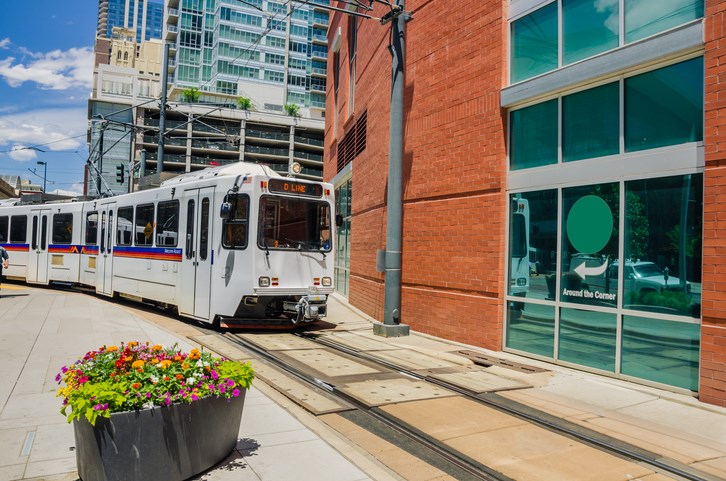
8. Park outside major cities
The only thing worse than trying to find a parking spot big enough for your RV in a city is paying for it. Nanet Moesman of the adventure travel blog Always Around the World often parks the converted camper van she’s been living in for nearly 2 years just outside cities and catches a bus or train in. “This is especially rewarding at park and ride parks,” says Moesman. “They let you park for a very small fee or for free and often, you get a free public transport ticket into the city.” For example, more than half of Denver’s 70 park-and-ride locations are free to park at. From there, you can take an RTD bus or train downtown or to the airport. Fares start at just $5 while if you were going to park downtown, you could expect to pay between $2-$8/hour.
 Katie Jackson is a writer and media specialist based in Montana’s Big Sky Country. Living and working everywhere from New York to Nicaragua, Katie is no stranger to adventure. When she’s not traveling the world (or writing about it!) she’s busy chasing after a Leonberger named Zeus. Follow Katie’s travels on Instagram @katietalkstravel.
Katie Jackson is a writer and media specialist based in Montana’s Big Sky Country. Living and working everywhere from New York to Nicaragua, Katie is no stranger to adventure. When she’s not traveling the world (or writing about it!) she’s busy chasing after a Leonberger named Zeus. Follow Katie’s travels on Instagram @katietalkstravel.
